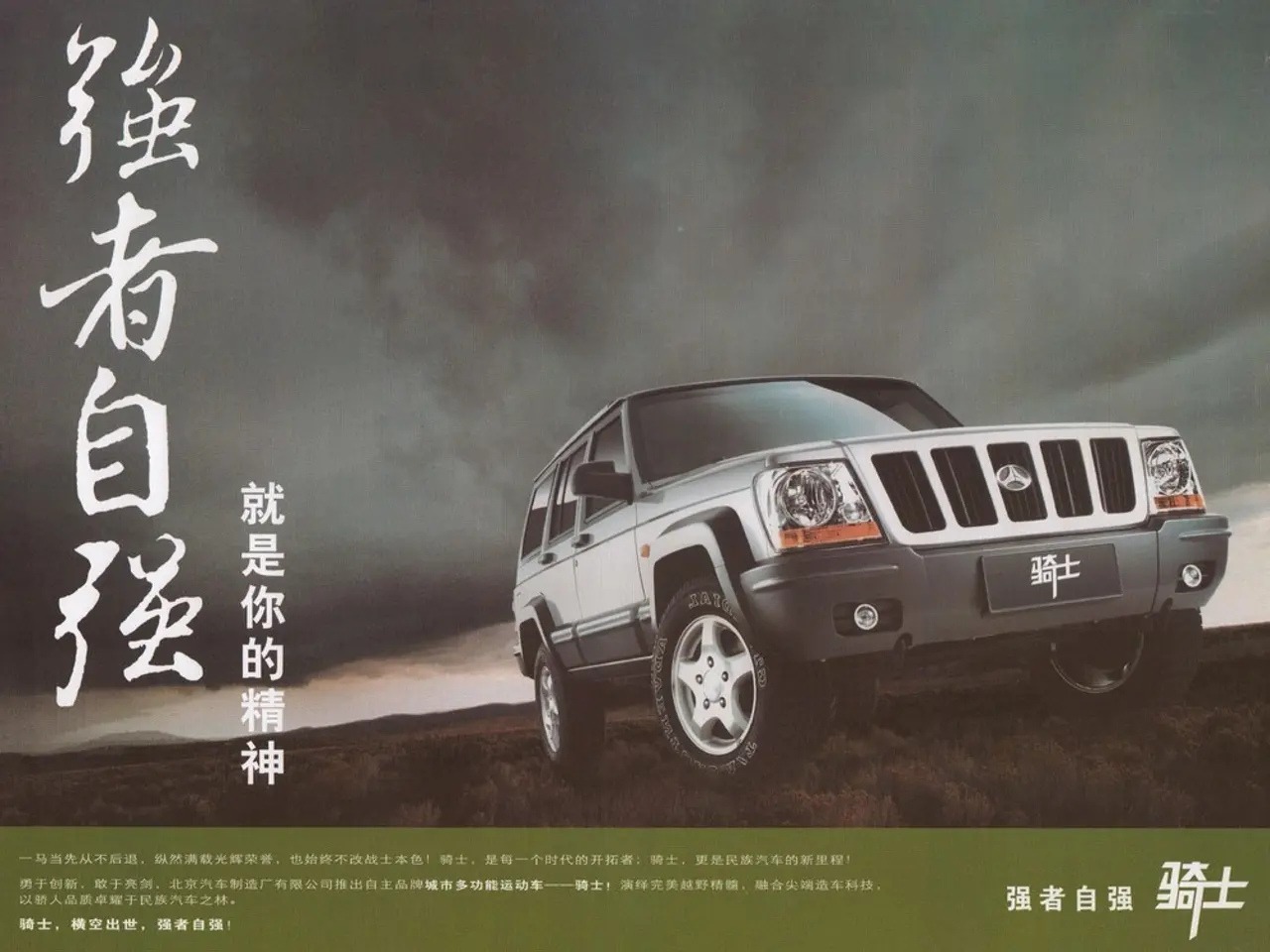Solar-powered ship transports 4,000 Chinese vehicles from China to Greece, marking a significant milestone in renewable energy transportation.
In the realm of transportation, two significant advancements have been made recently. In Germany, a new battery film is being developed to make electric vehicles (EVs) more powerful and safer, while in China, the Yuanhai Kou vessel, the world's largest solar-powered car carrier, has successfully completed its maiden voyage.
The Yuanhai Kou, built by China COSCO Shipping Corporation, is a testament to the strides being made in green shipping. This vessel, designed as China's largest photovoltaic (PV) + LNG energy car carrier, features a hybrid propulsion system that combines solar power and a dual-fuel engine running on liquefied natural gas (LNG) and conventional fuel oil. This innovative system results in a 20% reduction in energy consumption compared to conventional vessels, leading to substantial environmental benefits and energy savings.
The Yuanhai Kou's maiden voyage was fully loaded with Chinese-brand vehicles, more than 90% of which are new energy vehicles (NEVs). The vessel's onboard photovoltaic system, equipped with Longi's Sea-Shield solar modules, generates 410,000 kWh of electricity annually. This solar energy powers lighting, communication, and other auxiliary systems, saving approximately 111 tons of fuel and 346 tons of CO₂ emissions per year, equivalent to planting 38,000 trees.
The Yuanhai Kou's dual-fuel engine and smart loading software enhance energy efficiency and reduce emissions. Each round-trip voyage between China and Europe results in a reduction of approximately 2,100 tons of carbon dioxide emissions. Over its lifecycle, the vessel's carbon intensity is projected to be approximately 35% lower than that of traditional ships, making it a benchmark in sustainable maritime transport.
Meanwhile, in Germany, researchers are working on a new battery film that could significantly improve the performance and safety of EVs. While details about the film are scarce, it is expected to increase the energy density of batteries, thereby extending the range of EVs and reducing charging times.
These advancements in transportation technology are a step forward in fostering sustainable international logistics and supporting the maritime industry's decarbonization efforts. As the world continues to grapple with climate change, innovations like these are crucial in reducing fuel consumption and carbon emissions.
In other news, Elon Musk announced a new political party, signalling a further departure from former President Trump. Meanwhile, a mysterious sword dating back to the medieval period was found at the bottom of a Polish river, and a 2,000-year-old Roman 'Bigfoot' mystery involves the discovery of 5,000 giant shoes in Britain.
[1] China COSCO Shipping Corporation Limited. (2021). Yuanhai Kou: World's Largest Solar-Powered Car Vessel. Retrieved from https://www.coscoshipping.com/en/news/yuanhai-kou-worlds-largest-solar-powered-car-vessel [2] Xinhua. (2021). China's BYD Launches Hybrid EV with 1,243-Mile Range. Retrieved from https://www.xinhuanet.com/english/2021-06/17/c_139821719.htm [3] Longi Solar. (2021). Longi's Sea-Shield Solar Modules Power World's Largest Solar-Powered Car Vessel. Retrieved from https://www.longisolar.com/en/news/longis-sea-shield-solar-modules-power-worlds-largest-solar-powered-car-vessel [4] China COSCO Shipping Corporation Limited. (2021). Yuanhai Kou Achieves Significant Environmental Benefits and Energy Savings. Retrieved from https://www.coscoshipping.com/en/news/yuanhai-kou-achieves-significant-environmental-benefits-and-energy-savings
- The development of a new battery film in Germany, aimed at increasing the energy density of electric vehicle batteries, is a notable innovation in the realm of science and technology.
- The Yuanhai Kou vessel, a solar-powered car carrier successfully completed by China COSCO Shipping Corporation, exemplifies significant advancements in science, technology, and the environmental-science sector, particularly in green shipping.
- The maritime industry's decarbonization efforts can benefit from such innovations as the Yuanhai Kou's hybrid propulsion system, which combines solar power, liquefied natural gas, and smart loading software to reduce energy consumption and carbon emissions.
- The successful maiden voyage of the Yuanhai Kou and the development of the new battery film in Germany highlight crucial steps in fostering sustainable environmental practices within the science, technology, finance, and transportation industries.




